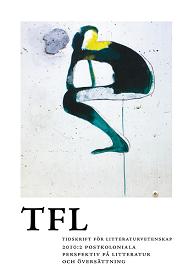Meningen med »maningue«
Om litterär översättning och främmande ord
DOI:
https://doi.org/10.54797/tfl.v40i2.11965Nyckelord:
translation, postcolonialism, world literature, glossing, Mia CoutoAbstract
The Meaning of »Maningue«: Thoughts on Literary Translation and Foreign Words
With a focus on the stylistic phenomenon of glossing in postcolonial writing, this article argues that the status of »foreign« words in literary texts and the task of translation are inherently unstable. By combining perspectives from the relatively discrete theoretical formations of postcolonialism, world literature studies and translation studies, it advocates a more dynamic understanding of self and other, the familiar and the foreign, the West and the rest (as these polarities play themselves out in translation and literary circulation) than is current. The Mozambican author Mia Couto’s novel Terra sonâmbula is a case in point: while his stylistic reinvention of Portuguese, which includes the use of words from Mozambican languages, is commonly read as a foreignisation of the language, from a Mozambican perspective it is more likely to be read as domestication. This undecidability
of the familiar and the foreign is then reflected and refracted by the divergent decisions of translators. A closer look at French, German, Norwegian, Danish, Swedish and English versions of Terra sonâmbula reveals a wide range of strategies with regard to glossing. The Scandinavian versions include most instances of glossing, the English version has none. There is however no fixed norm against which to judge these different strategies. The translational fate of words such as »xipefo« and »maningue« demonstrates instead the role of translation (and of the translator) as a constitutively transformative factor in the shaping of world literature.
Nedladdningar
Downloads
Publicerad
Referera så här
Nummer
Sektion
Licens
Författaren/författarna behåller copyright till verket






